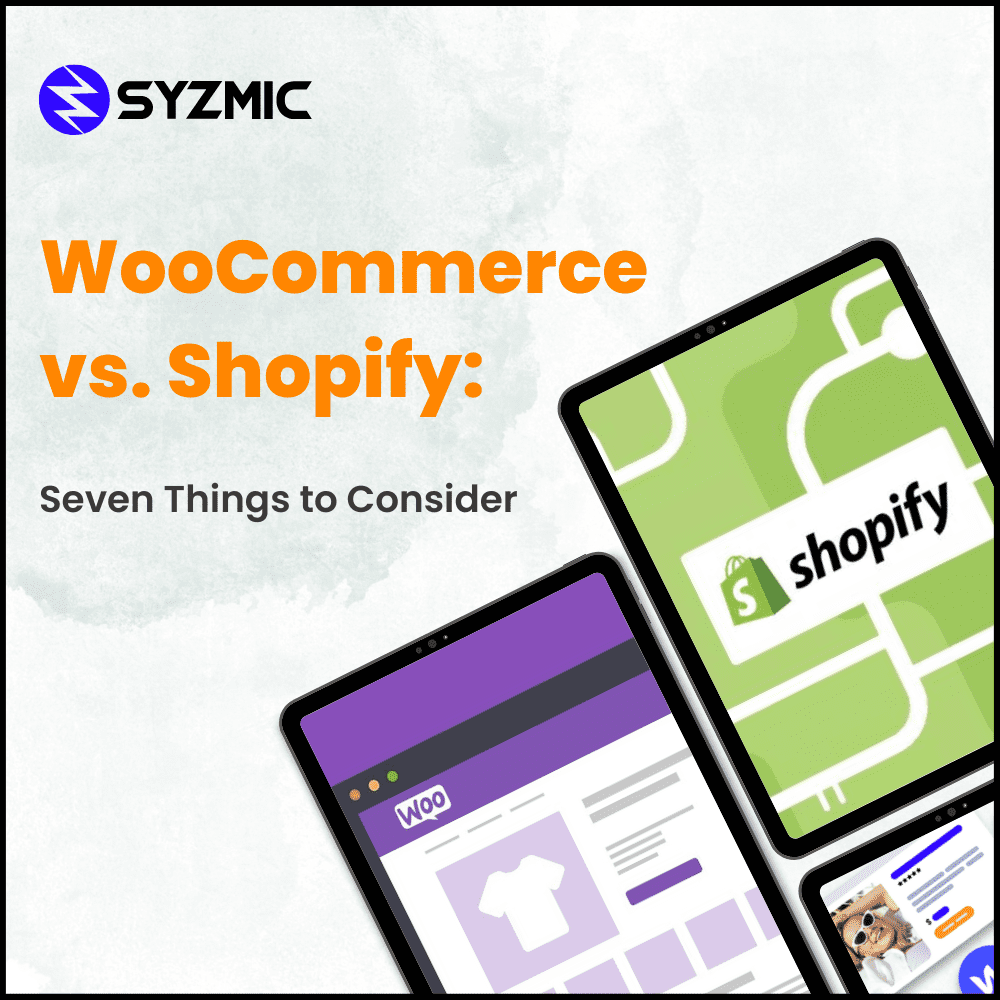We live in a day in age where e-commerce is king. There are so many options on the marketing with so many opinions that it can make your head spin when trying to decide which CMS platform is right for you. In the article, we talk about the top seven things to consider when deciding between Shopify & WooCommerce.
1. Ease of Use
WooCommerce: WooCommerce is built as a WordPress plugin, making it slightly more complex to set up and manage. It requires familiarity with WordPress and may be better suited for users with some technical proficiency.
Shopify: Shopify is known for its user-friendly interface and intuitive setup process. It requires minimal technical knowledge and allows users to quickly get their store up and running.
2. Cost
WooCommerce: WooCommerce is free to download and use. However, you’ll need to account for costs such as web hosting, domain registration, SSL certificates, and potentially premium themes or extensions.
Shopify: Shopify operates on a subscription-based model, with monthly fees that vary depending on the plan you choose. The cost includes hosting, security, and support.
3. Customization
WooCommerce: WooCommerce provides extensive customization options since it integrates with WordPress, the world’s most popular content management system. Users have full control over the design, functionality, and content of their store.
Shopify: Shopify offers a range of customizable themes and allows users to modify the look and feel of their store through the theme editor. However, customization options may be limited compared to WooCommerce.
4. Scalability
WooCommerce: WooCommerce’s scalability depends on your hosting environment. With the right hosting resources and optimizations, it can handle growth, but it may require more proactive management and monitoring for larger catalogs or high traffic volumes.
Shopify: Shopify is designed to handle high-volume sales and can accommodate businesses with large product catalogs or significant traffic. It provides a robust infrastructure to ensure stability and performance.
5. Features and Extensions
WooCommerce: WooCommerce provides a solid set of essential features out of the box, but its true strength lies in its extensive plugin ecosystem. Users can choose from thousands of plugins to enhance their store’s functionality and integrate with various third-party services.
Shopify: Shopify offers a wide range of built-in features and functionalities, including payment gateways, inventory management, abandoned cart recovery, and more. It also has a large app store for additional extensions and integrations.
6. Support and Maintenance
WooCommerce: As a self-hosted platform, support for WooCommerce primarily comes from the WordPress community, plugin developers, and hosting providers. Maintenance tasks, such as updating WordPress, themes, and plugins, are your responsibility.
Shopify: Shopify offers 24/7 customer support via live chat, phone, or email. They handle server maintenance, security updates, and backups, relieving you of those responsibilities.
7. SEO and Content Marketing
WooCommerce: WooCommerce integrates with WordPress, which is renowned for its SEO-friendly nature and robust blogging capabilities. It offers extensive options for content marketing and organic search engine visibility.
Shopify: Shopify provides basic SEO features and allows users to optimize their store for search engines. However, its blogging capabilities are more limited compared to WooCommerce.
Conclusion
Choosing between a Shopify store and WooCommerce requires careful consideration of factors such as ease of use, cost, customization, scalability, features, support, and SEO capabilities. Shopify offers simplicity, built-in features, and strong support, while WooCommerce provides flexibility, extensive customization, and a powerful plugin ecosystem. Assess your specific needs, technical proficiency, budget, and growth plans to make an informed decision that aligns with your business requirements.








0 Comments